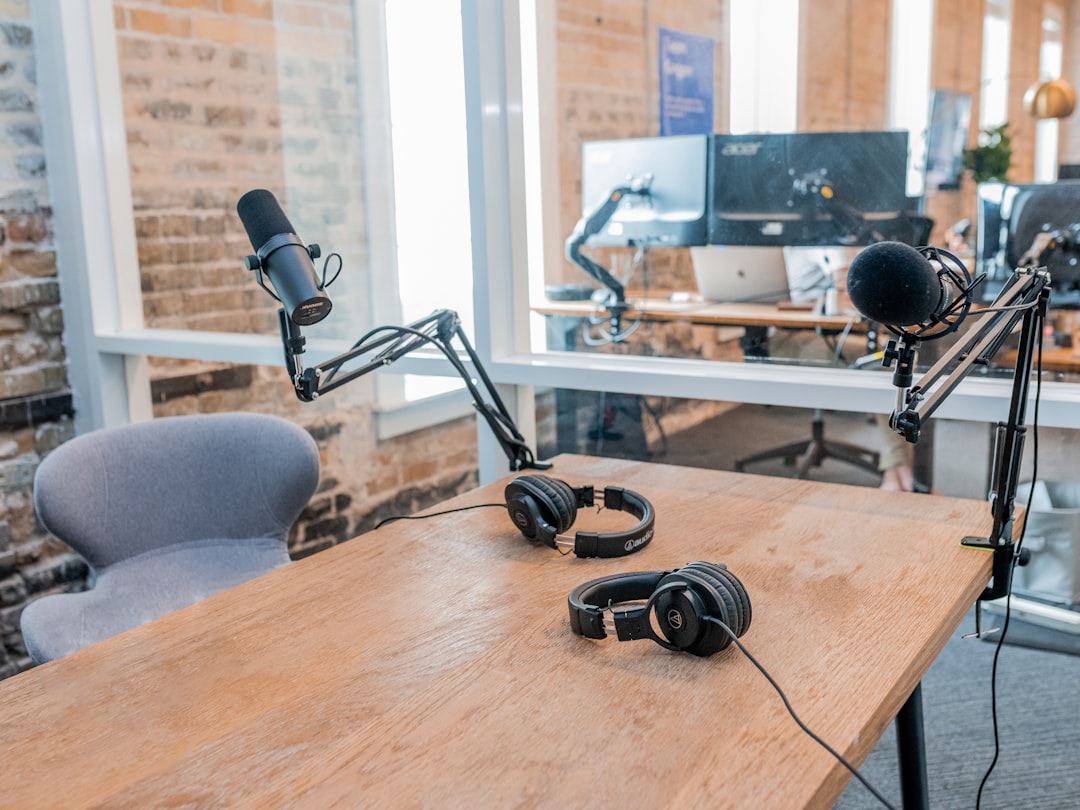- Active listening strategies
- Pause and think techniques
- Rephrasing questions
- Honesty and transparency in communication
- Bridging statements
- Interview tips
Media interviews can be daunting, especially if you’re not accustomed to being in the spotlight or being put on the spot. However, they can also be incredibly rewarding and valuable opportunities to share your message or promote your brand or organization. One of the biggest challenges during a media interview is handling tough or unexpected inquiries. In this post, we will discuss some techniques for staying calm and composed in these situations, including active listening strategies, pause and think techniques, rephrasing questions, honesty, and transparency in communication, bridging statements, and general interview tips.

Tips for Staying Calm and Composed During Media Interviews
Active listening strategies
The first technique for staying calm and composed during a media interview is to use active listening strategies. This means paying attention to what the interviewer is saying and asking, as well as any nonverbal cues. Make eye contact and nod your head to show that you are engaged and
listening. This will not only help you better understand the question, but it will also give you time to gather your thoughts and compose a response. It’s important to note that active listening is not the same as waiting for your turn to talk. Take the time to really absorb what the interviewer is saying and think about the context of the question. This will help you formulate a thoughtful and meaningful response.
Pause-and-think techniques
When faced with a tough or unexpected inquiry during a media interview, it can be tempting to rush to answer the question. However, it’s important to take a moment to pause and think before responding. This will give you time to collect your thoughts and consider your response. One technique for pausing and thinking is to take a deep breath before answering. This will help you relax and clear your mind.
Another technique is to repeat the question back to the interviewer before answering. This will ensure that you fully understand the question and can help you avoid misunderstandings.
Rephrasing questions
Sometimes, tough or unexpected inquiries during a media interview can be challenging to understand. In these cases, it’s okay to ask the interviewer to rephrase the question. This will ensure that you fully understand the question and can give a thoughtful response. It’s important to avoid being defensive or dismissive when asking for clarification. Instead, approach it as an opportunity to fully engage with the question and provide a thoughtful response.
Honesty and transparency in communication
One of the most important techniques for staying calm and composed during a media interview is to be honest and transparent in your communication. This means answering questions truthfully and openly, even if the answer is not what the interviewer or audience wants to hear. It’s important to remember that honesty and transparency will help you establish trust with the interviewer and audience. If you try to avoid tough questions or provide dishonest answers, you risk damaging your credibility and reputation.
Bridging statements
Bridging statements are a powerful tool for staying calm and composed during a media interview. These are statements that
allow you to shift the focus of the conversation away from the tough or unexpected question and towards a more positive or relevant topic. For example, if you are asked a tough question about a recent controversy, you might use a bridging statement like “I appreciate your concern about that issue, but what I really want to focus on is how our organization is working to address the underlying challenges in our industry.” Bridging statements allow you to take control of the conversation and steer it in a more positive direction. However, it’s important to use them strategically and not rely on them too heavily.
In addition to these specific techniques, there are also some general interview tips that can help you stay calm and composed during a media interview.
First, it’s important to prepare thoroughly before the interview. This means researching the interviewer, the outlet, and the topic being discussed. It’s also important to prepare talking points or key messages that you want to communicate during the interview. Practice answering potential questions in advance so that you feel more comfortable and confident during the interview.
Here are 10 commonly used bridging statements:
1. “And what’s most important to know is…”
2. “However, the real issue here is…”
3. “And what this all means is…”
4. “With this in mind, if we look at the bigger picture…”
5. “Before we continue, let me emphasize that…”
6. “What this all boils down to is…”
7. “The heart of the matter is…”
8. “And as I said before, …”
9. “And if we take a closer look, we will see…”
10.“Let me point out again that…”
Prepare thoroughly before the interview.
Be aware of your body language
Another important tip is to be aware of your body language. Your body language can communicate just as much as your words, so it’s important to maintain good posture and make eye contact with the interviewer. Avoid fidgeting or slouching, as this can make you appear nervous or unprepared.
Speak clearly and at a moderate pace
It’s also important to speak clearly and at a moderate pace. Take your time when answering questions and avoid speaking too quickly. This will help ensure that your responses are clear and concise. It’s okay to pause before you answer.
Media interviews can be challenging, especially when faced with tough or unexpected inquiries. However, with the right techniques and preparation, staying calm and composed during a media interview, and effectively communicating your message you will successfully promote your brand or organization. By using active listening strategies, pause-and-think techniques, rephrasing questions, honesty and transparency in communication, bridging statements, and general interview tips, you can navigate even the toughest of questions with confidence and grace.
Remember to stay calm, take your time, and communicate honestly and openly, and you’ll be sure to make a positive and lasting impression.




